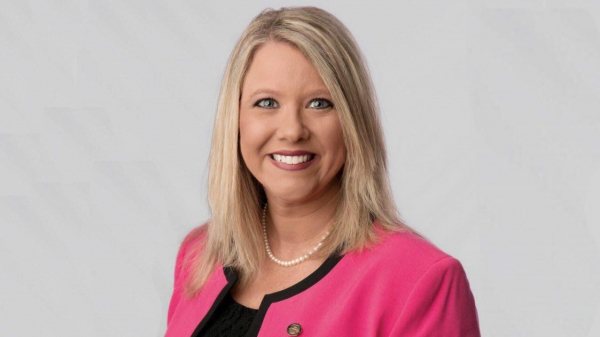On Wednesday, the Alabama Senate Judiciary Committee passed SB324, a bill introduced by state Sen. Clyde Chambliss, R-Prattville, which looks to restructure Alabama’s controversial Board of Pardons and Paroles.
Chambliss, who is also the current chair of the legislature’s Joint Prison Oversight Committee, described a meeting which the committee had with the parole board in February of 2024, in response to concerns raised by their constituents.
“We all had different questions, the board says ‘these are not questions that we can answer right off the top of our head, we need to do some research, look at data, get back with y’all. We will provide a written response,'” Chambliss explained.
“Well, weeks turned to months and months rolled off and toward the end of that year we had still not received a report, an answer to those questions,” Chambliss continued. “So we invited the board to come to our October meeting of the Joint Prison Oversight Committee, which they did. We asked pretty much the same questions, and which we got no answers for. Thus began the frustration.”
Chambliss went on to add that he learned the parole board was responsible for reviewing its own guidelines every three years, a schedule which the current board had not adhered to. “I felt like they misled the committee,” he stated. “They knew that they were supposed to do it, they knew that they were years behind, but they wanted to act like they didn’t know.”
Chambliss explained that this lack of response inspired him to draft SB324 in consultation with other members of the Joint Prison Oversight Committee. He added that it was only through reaching out to the Attorney General’s office that the committee began to receive some answers to their questions of the parole board in March of this year.
“The real problem, in my opinion, is, number one: lack of response to an oversight committee. And if we’re okay with that, that’s fine, we need to quit having oversight committees,” he went on. “If we’re going to have oversight committees, we need to be responded to directly, without delay, proper timing, but not some 9 to 14 months later depending on when it was officially responded to.”
Interestingly, Chambliss explained that he is “not concerned” about the board’s extremely low rate of granting parole — something which has garnered the board heavy criticism from activists and legislators across the state. Starting in 2019, the board’s rate of granting parole plummeted, and despite modest increases since then, the current grant rate of 23 percent remains a far cry from the average recommended grant rate of 80 percent as outlined by the state’s parole guidelines.
“I’m not really concerned about the parole rate. If we have more and more violent offenders, the rate probably should trend a little lower, if we have less violent, maybe it tends a little higher. That’s not my issue,” Chambliss said. “My issue is that the board’s conformance with their own guidelines — guidelines that they can write, they can change — their conformance is 20 percent to their own guidelines.”
“If we write the rules, we need to abide by the rules,” he continued. “If we’re not going to abide by our rules, we need to change the rules, because we have the power to do that. Not only do we have the power to do that, the legislature has directed that to be done.”
Chambliss went on to explain the provisions of his bill.
SB324 would expand the parole board from three members to five, with the board itself appointing the chair from among its own members in lieu of the governor appointing the chair. Additionally, the bill requires that no member appointed to the board by the governor begin serving until they are confirmed by the Senate.
Chambliss’ legislation also creates a schedule for future parole considerations when the board denies parole to an incarcerated person.
“For inmates serving a sentence of 20 years or less for a conviction of a nonviolent offense” the board must reconsider their parole “no more than two years” after the initial parole request was denied. That timeline is set to no more than 10 years “for inmates serving a life sentence for one or more violent Class A felony offenses” and to no more than 180 days for cases of medical parole. In all other cases, the board would be required to reconsider an incarcerated person’s parole no more than 5 years after denial.
Sen. Bobby Singleton, D-District 24, a member of both the Senate Judiciary and Joint Prison Oversight Committees said that he supported the bill “100 percent.”
Sen. Lance Bell, R-District 11, also expressed his support of the bill, calling the parole board’s behavior at the Joint Prison Oversight Committee October meeting an “embarrassment” and “disturbing.”
“When they come and they will not answer your questions, there’s got to be consequences,” Bell added.
Sens. Linda Coleman-Madison, D-District 20, and Rodger Smitherman, D-District 18, echoed their colleagues’ support for the bill.
Sen. April Weaver, R-District 14, expressed concern that SB324 would make the board “more lenient,” a notion she took issue with.
The Judiciary Committee went on to pass the bill with bipartisan support, with eight members voting in favor and three voting against. SB324 will now go the Senate floor for further consideration.




















































